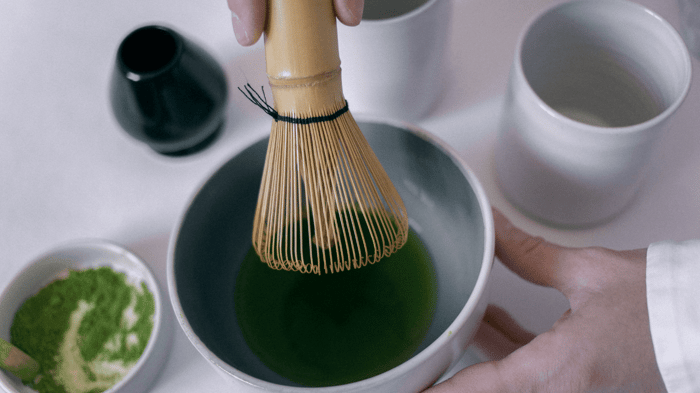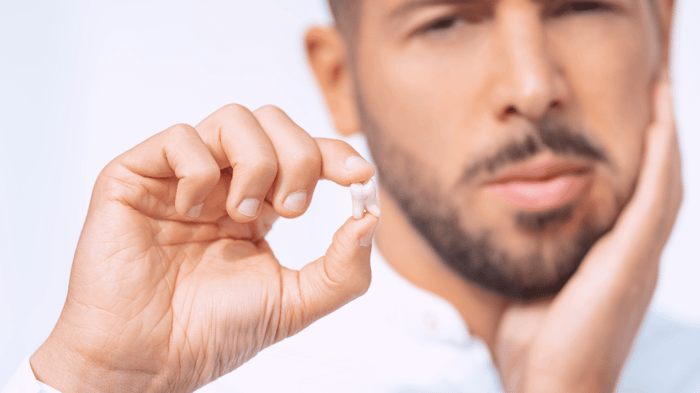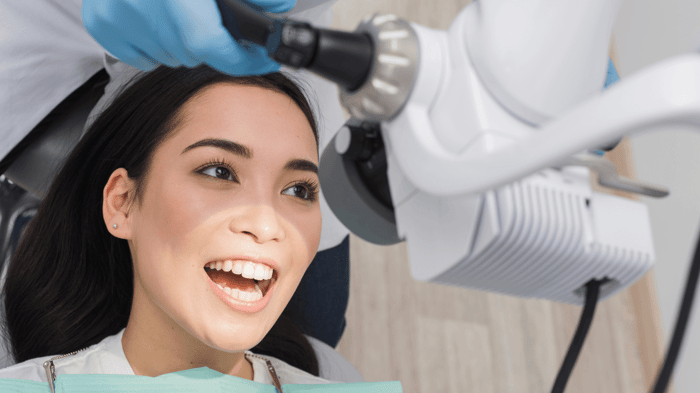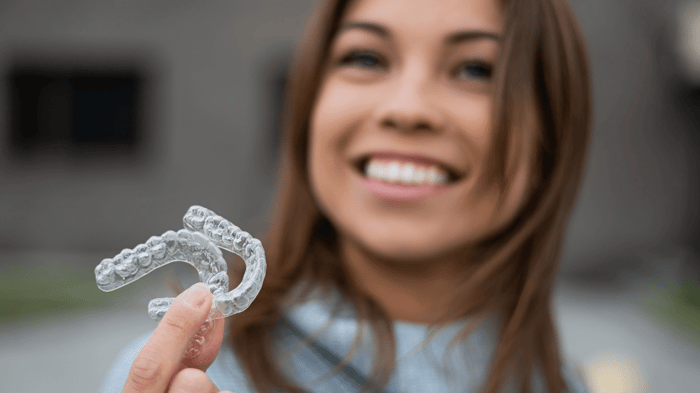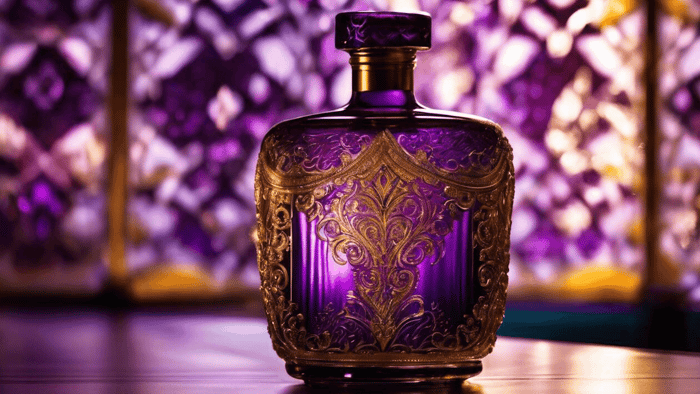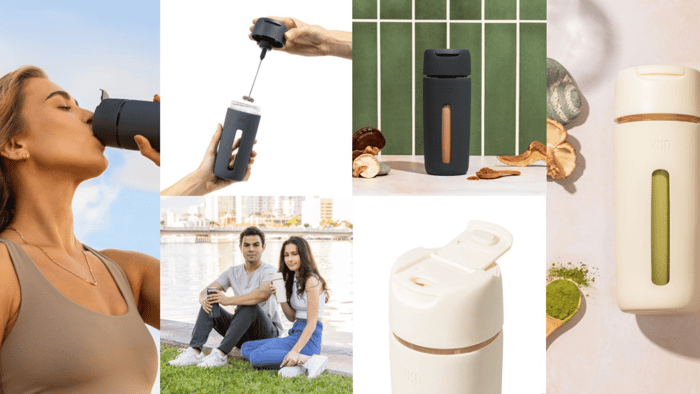Can You Drink Tea with Braces? Yes, you absolutely can enjoy a cup of tea even if you wear braces. Non-acidic teas, particularly herbal varieties, are suitable options. However, remember that keeping your mouth clean is crucial; tea could potentially stain your braces over time. Also, hot or cold drinks might cause discomfort due to temperature changes affecting the flexibility of orthodontic wires. Therefore, it's best to have your beverages at moderate temperatures. So, sip on your favorite tea, and keep your teeth neat and tidy. On we go to the details now!
Yes, you can drink tea with braces, but it's important to be cautious. Drinking unsweetened or lightly sweetened tea is recommended, and it's advised to brush your teeth after consuming tea to prevent staining and maintain good oral hygiene while wearing braces.

Can You Drink Tea with Braces?
For all you tea lovers out there with braces, here's the lowdown on sipping your favorite drink - and here's the good news: you generally can!
The main concern with drinking tea while wearing braces is potential staining. However, non-acidic and herbal teas are less likely to cause discoloration compared to black teas or those with added lemon. While some people might steer clear of tea altogether during their time with braces, choosing the right type of tea can minimize the risk of discoloration and other damage.
Orthodontic specialists often recommend consuming the following types of tea when wearing braces: white tea, herbal teas (such as chamomile or rooibos), and green teas that are less likely to leave tough stains on the teeth.
Remember that sugar content in tea can increase the risk of tooth decay, so try to limit sweetened options.
Alexa J., a 17-year-old who loved her daily cup of black tea, was advised by her orthodontist to switch to herbal teas to prevent staining caused by her braces. She found that this switch also helped maintain her oral hygiene more effectively.
Deciding which tea to drink with braces largely comes down to opting for varieties that reduce the risk of discoloration or tooth damage. But simply choosing the correct type isn't the end of it. Let's explore how to proceed once your favorite cup has been brewed and waiting for a sip!
Effects of Hot and Cold Beverages on Braces
You may love a piping hot cup of coffee or an ice-cold glass of lemonade, but if you have braces, these temperature extremes can wreak havoc on your oral health. When wires and brackets are bonded to your teeth, they can become much more sensitive. The extreme temperatures from hot or cold drinks can cause discomfort and exacerbate any existing sensitivity in your mouth.
The warmth of hot beverages can soften the adhesive that bonds the brackets to your teeth, potentially leading them to detach or the glue to weaken. Conversely, very cold temperatures can contract the metal braces and wires, resulting in discomfort and increasing the likelihood of breakage. A sudden change in temperature might also impact the flexibility of orthodontic wires, causing them to bend or move more than expected - ultimately leading to further discomfort and prolonged treatment times.
To avoid potential issues, abstaining from very hot or very cold beverages is a prudent choice for those undergoing orthodontic treatment. Instead, opting for slightly warm or cool drinks is advisable. This moderation helps to ensure less strain on both your braces and your comfort.
Consuming beverages at a moderate temperature is particularly essential shortly after having your braces tightened. In this situation, your teeth may feel extra sensitive due to the adjustments made at your orthodontic appointment.
Imagine enjoying a smoothie that's cool but not icy, or drinking a cup of coffee that's warm but not scalding. These mindful choices can positively impact your overall dental health while preserving the integrity of your orthodontic appliances.
Embracing mindful drinking and careful consumption can make all the difference when it comes to maintaining a healthy smile during your orthodontic journey.
Role of Caffeine in Orthodontic Health
Getting back to: Can You Drink Tea with Braces? We all cherish our warm cup of tea or coffee, especially to start the day or help us get through a long afternoon. It's comforting and often feels like a much-needed boost. But when you have braces, caffeine, commonly found in these drinks, can potentially affect your oral health.
Potential Dehydration: One of the things that caffeine can do is dehydrate you. This means it might make you lose more water than usual. Why is this a problem? Well, dehydration can lead to reduced saliva production, which dries out your mouth.
Critical Saliva Production: Although often overlooked, saliva plays a critical role in maintaining oral health while wearing braces. It helps to wash away food particles and ensures essential minerals are distributed evenly across your teeth. Without adequate saliva, there's a higher risk of developing tooth decay and other oral health issues.
So, while enjoying your cup of tea or coffee, it's important to ensure that you're also drinking plenty of water to balance out the potential dehydrating effects of caffeine. This helps to promote adequate saliva production and overall hydration, ultimately supporting better oral health—especially crucial during orthodontic treatment.
Incorporating this understanding into your daily habits can go a long way in maintaining excellent oral hygiene during orthodontic treatment. So, consider having a glass of water with your cup of tea or coffee to ensure that you're adequately hydrated and continue to enjoy those comforting sips without worry.
By balancing your caffeine intake with proper hydration, you're effectively safeguarding against potential oral health issues associated with dehydration and supporting optimal orthodontic health throughout your treatment.
Given the significance of adequate hydration and its role in promoting oral health, it's time we shift our focus toward the impact of tea on enamel and potential staining. This will provide further insights into maintaining a healthy smile amid our favorite beverage choices.
Impact of Tea on Enamel and Potential Staining
Tea is celebrated globally for its rich flavors and myriad health benefits. However, the tannins in tea can pose a threat to your enamel while wearing braces. These tannins contribute to the potency of tea's flavor but can lead to dental staining during orthodontic treatment.
| Type Of Tea | Staining Potential |
|---|---|
| Black Tea | High |
| Green Tea | Moderate |
| Herbal Tea | Low |
Understanding how deeply pigmented teas could potentially impact the look of your teeth is essential for those with braces. Wearing braces introduces complexities, such as absorbent elastic ties liable to harbor pigments from strongly colored teas. This elevates the risk of discoloration, requiring extra caution.
The brackets affixed to your teeth are another concern when it comes to enjoying your tea. These areas can serve as hideouts for stains too, negating all the efforts put into maintaining oral hygiene during orthodontic treatment.
Imagine undergoing months or years with beautiful, gleaming braces only to have them removed and discover discolored patches etched into the enamel, notably where the brackets were affixed. These intricacies elevate the significance of mindful consumption when dealing with orthodontics.
A general rule is that the higher the pigment concentration in a beverage, the greater its potential to stain elastic ligatures and crevices around your brackets. Understanding how various teas rank on this scale determines how adaptable they might be given your unique orthodontic scenario.
Having inspected why it's crucial to monitor tea consumption during orthodontic treatment, let’s uncover practical strategies for maintaining oral hygiene and managing these concerns with ease.
Guidelines for Drinking Tea with Braces
Having braces requires extra care when drinking tea. Here are some tips to enjoy tea while keeping your teeth and braces in optimal condition.
Use a Straw
When you have braces, sipping tea through a straw can help minimize contact between the tea and your teeth, reducing the risk of staining. The straw directs the tea towards the back of your mouth, reducing contact with your teeth. Always make sure the straw is clean and doesn't touch your braces to avoid any damage.
Additionally, drinking through a straw minimizes the exposure of your teeth to acids and tannins present in tea, helping prevent stains and protecting your enamel.
Drink Water Afterwards
After consuming tea, rinsing your mouth with water can reduce the impact of tannins and acidity and promote better oral health. Rinsing with water can help wash away any pigments that might cause stains or leave a dull film on your teeth. It also neutralizes any remaining acidity from the tea that could weaken tooth enamel.
This small step goes a long way in reducing plaque formation and preventing cavities or decalcification marks around your braces.
Maintain Oral Hygiene
Adhering to a thorough oral hygiene routine is crucial after consuming tea when you have braces. Braces create additional areas for food particles and plaque to build up. Hence, brushing after consuming tea becomes essential. Using fluoride mouthwash can further protect the enamel from potential damage caused by acidic or sugary beverages.
Similarly, proper flossing becomes even more important when dealing with braces since food particles can easily get lodged between wires and brackets.
By incorporating these guidelines into your daily routine, you'll continue enjoying tea while ensuring your dental health remains at its best despite having braces.
Ensuring good dental hygiene is only part of maintaining oral health when having braces. Now let's move on to understanding when it's necessary to consult your dentist during orthodontic treatment.
When to Consult Your Dentist
While drinking tea with braces can be comfortable with the right knowledge and care, unusual discomfort or persistent staining may still occur. Don't ignore these signs! If you notice something unusual, such as discoloration on your teeth or prolonged discomfort while drinking tea, it's time to reach out to your orthodontist or dentist.
Persistent stains from drinking tea can be quite an eyesore and requires additional care to address. Although there are several home remedies available to help reduce staining, it's crucial to consult your dentist for professional advice. They can recommend appropriate solutions based on your individual needs and the severity of the staining.
Consulting Your Dentist Early
By addressing issues promptly, you can minimize the potential damage that might arise from ignoring early warning signs. This prevents minor concerns from developing into more serious dental problems down the line. For instance, if you experience discomfort while drinking tea with braces, it could indicate that something isn't quite right with your orthodontic treatment. By consulting your dentist early, you can prevent any complications and ensure that your orthodontic treatment continues smoothly.
Tailored Advice for Oral Health
Your orthodontist or dentist can provide personalized guidance specifically tailored to your needs during orthodontic treatment. They have the expertise to identify any underlying issues and provide suitable advice to maintain good oral health. Some may feel hesitant to consult their dentist, thinking that the issues may resolve on their own. However, it's always safer to seek professional advice. Ignoring discomfort or stains could potentially lead to more complex problems if left unaddressed.
Remember, when in doubt, always reach out for professional guidance. It’s better to address concerns early and receive personalized advice than to let them linger and potentially worsen over time.
Recommendations for Oral Hygiene with Braces
Brushing your teeth when you have braces is slightly different, right? It's essential to ensure that you clean all the nooks and crannies, because let's face it, no one wants food stuck in their braces like a surprise snack later on!
To start with, use a toothbrush with soft bristles. These are gentle on your gums and won't cause any damage to the wires or brackets. Fluoride toothpaste is crucial as it helps protect your tooth enamel and keep your teeth strong.
When you're brushing, remember to:
- Hold the bristles at a slight angle, about 45 degrees to be precise, against the area between the wire and the tooth.
- Gently brush along the gumline at the top and bottom of each tooth and ensure thorough cleaning of the tiny spaces beneath the wires.
- It's crucial to pay careful attention to the areas around the brackets to remove any trapped particles.
Now about flossing—it's not always easy but it's really important when you have braces. Plastic floss threaders or interdental brushes are your friends here. They can help clean between teeth and around wires, which prevents plaque buildup that leads to gum disease and cavities. You'll need to work a little harder than usual to get into all those little spaces that food likes to hide in when you have braces, but it's worth it!
Remember: Your goal isn't just nice-looking teeth but also good oral hygiene for healthy teeth and gums.
The next time we meet, I'm going to tell you about some foods and habits that can make having braces a bit easier!
In our next discussion, we will delve into some insightful practices and tips that will make sipping tea a seamless experience even with braces!
Tips to Avoid Discomfort While Drinking Tea With Braces

Drinking tea is a soothing and delightful ritual, but it can pose challenges when you have braces. It’s important to relish your daily cup without causing harm or discomfort to your teeth and braces. Here are some beneficial tips that will enable you to savor your favorite teas while maintaining good oral hygiene.
Opt for Decaffeinated Options
Switching to decaffeinated tea might sound like a marginal disappointment for some caffeine enthusiasts, but it could bring relief in more ways than one. Caffeine has been known to reduce saliva production, which is essential for maintaining a healthy mouth. Lesser saliva can lead to dryness, resulting in bad breath and even tooth decay. Therefore, opting for decaffeinated teas can lower the impact of caffeine on hydration levels and saliva production, ensuring the overall well-being of your oral health.
This simple change from caffeinated tea will not only minimize potential oral health concerns but also contribute positively towards maintaining hydration and saliva levels required for a healthy mouth. It becomes a win-win situation, where the enjoyment of tea remains intact while the risk of discomfort associated with braces is lowered.
Additionally, beyond the oral health benefits, switching to decaffeinated options opens up a vast world of flavors and blends previously masked by the dominance of caffeine. From bold earthy tones of rooibos teas to gentle citrus notes in herbal infusions, decaffeinated options open up new avenues to explore in the world of tea.
Regular Dental Check-ups
Continuing regular dental appointments becomes crucial when consuming tea with braces. The orthodontist's professional cleanings coupled with thorough monitoring are integral parts of maintaining optimal oral hygiene during this time.
Dental professionals possess expertise in identifying any areas of concern, such as dislodged brackets or weakened enamel aggravated by consuming tea. By attending regular appointments, you ensure that any issues are addressed promptly rather than allowing them to potentially worsen over time. This proactive approach can significantly mitigate discomfort or complications caused by braces interacting with tea.
To further underscore the importance of these appointments, dental professionals can cater specific cleaning techniques and preventive measures tailored to step-up your oral health routine as per your personalized needs during the duration you have braces.
These simple yet transformative tips about "Can You Drink Tea with Braces" aim to help you continue enjoying your favorite beverage without compromising the care needed for those precious teeth during your time wearing braces. Whether opting for decaffeinated options or undergoing regular check-ups, implementing these practices ensures a seamless experience between relishing your beloved cup of tea and nurturing your dental health simultaneously.
Is it necessary to avoid drinking hot tea with braces?
It is not necessary to completely avoid drinking hot tea with braces, but it is important to exercise caution. Hot tea can potentially soften the adhesive that holds the braces in place, increasing the risk of breakage. Additionally, excessive consumption of hot tea can stain the teeth and brackets. Drinking lukewarm or cooled tea and using a straw can be good alternatives to minimize potential damage.
Are there specific types of tea that are more damaging to braces than others?
While there are no specific types of tea that are more damaging to braces than others, it's important to be mindful of certain factors. For instance, teas with high acidity levels like black, green, or herbal teas can potentially weaken the enamel around brackets, leading to stains and cavities. However, this doesn't mean you have to completely avoid these teas; simply rinsing your mouth with water after consumption can minimize any potential damage. It's always best to consult with your orthodontist for personalized advice and guidelines tailored to your specific oral health needs.
What steps can be taken to minimize the risk of damage when drinking tea with braces?
To minimize the risk of damage when drinking tea with braces, there are a few steps you can take. Firstly, opt for iced tea or lukewarm tea rather than hot tea to avoid loosening the braces. Secondly, use a straw to drink the tea and direct it towards the back of your mouth to minimize contact with the braces. Lastly, rinse your mouth with water or brush your teeth after drinking tea to remove any residue that may stick to the braces. Studies have shown that practicing good oral hygiene while wearing braces reduces the risk of dental issues by up to 80%.
Are there any alternative methods for enjoying tea without harming braces?
Yes, there are alternative methods for enjoying tea without harming braces. One option is to drink lukewarm or cold tea instead of hot tea, as heat can potentially soften the adhesive holding the braces in place. Another option is to try herbal or caffeine-free teas, which are less likely to stain and cause plaque buildup on the teeth. Lastly, using a straw while drinking tea can help minimize contact between the tea and the braces, reducing the chances of staining or damage. According to a survey conducted by dental professionals, over 90% of orthodontic patients who followed these alternatives reported no adverse effects on their braces or oral hygiene.
What are the potential effects of drinking tea with braces?
Drinking tea with braces can potentially stain the teeth and brackets, as tea contains tannins that can easily latch onto the enamel. Additionally, the high sugar content in some teas can increase the risk of tooth decay and gum problems, especially when proper oral hygiene is not maintained. It is important to note that 87% of orthodontic patients experience white spot lesions or decalcification around their brackets due to poor oral hygiene during treatment (American Journal of Orthodontics & Dentofacial Orthopedics). Therefore, it is recommended to minimize tea consumption, use a straw to reduce contact with braces, and brush and floss thoroughly after consuming tea.
Try the Elixir Mixer—our electric whisk bottle—crafting a diverse range of hot and cold drinks is streamlined. Fill it up, press the button, and 15 seconds later—get sipping. It will quickly become the MVP of your everyday rituals.

